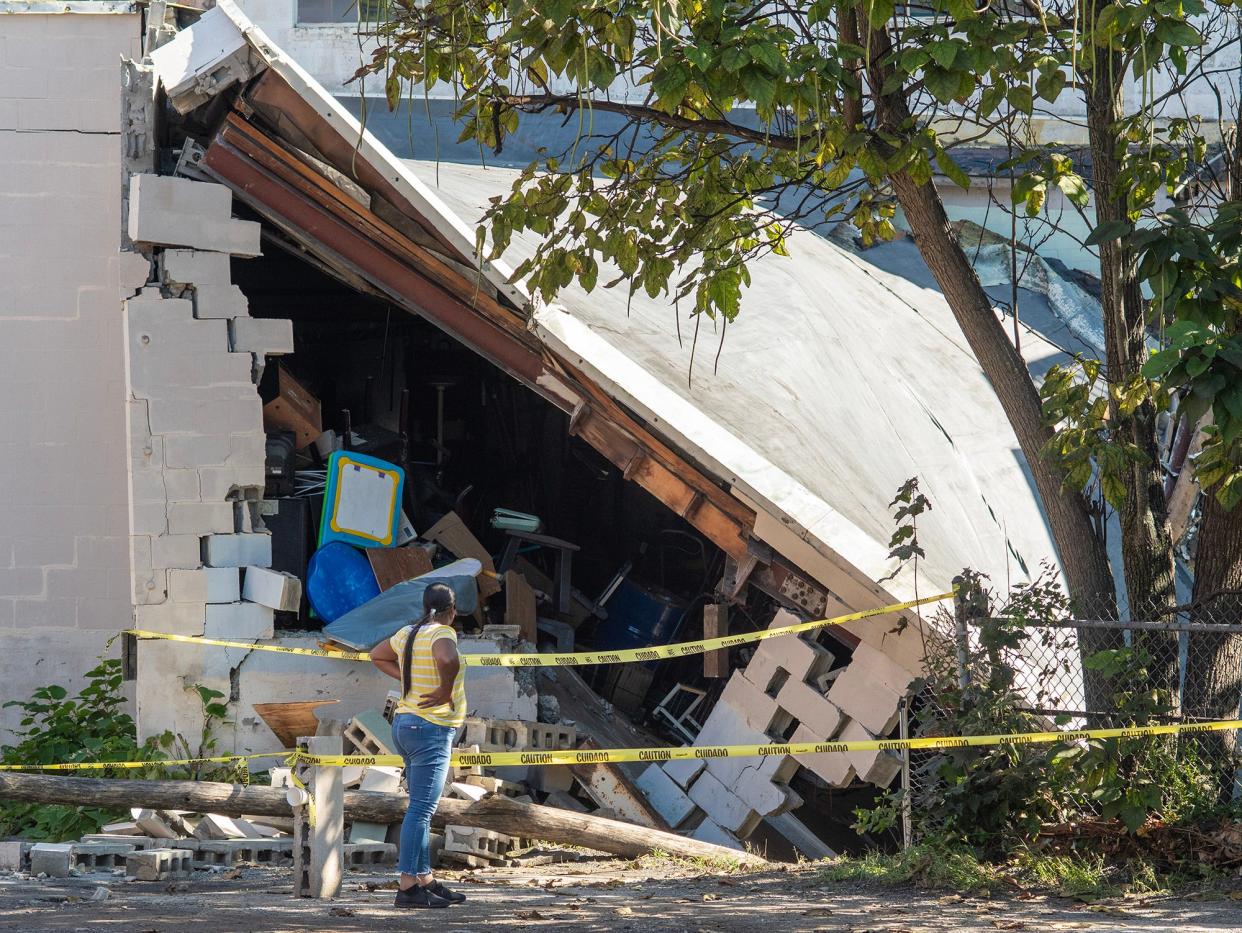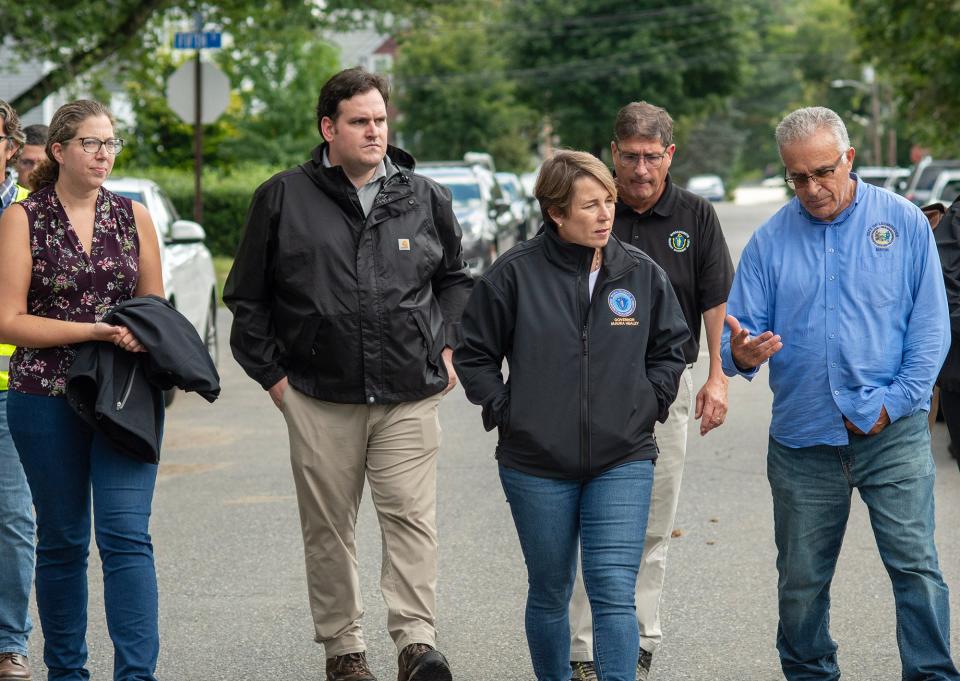Healey appeals FEMA decision to deny disaster aid to Leominster, other Mass. communities

In a letter to President Joe Biden, Massachusetts Gov. Maura T. Healey appealed the Federal Emergency Management Agency's decision to deny a disaster zone designation to parts of Worcester, Hampden and Bristol counties that were hard hit by torrential rainstorms and flash floods in September.
A federal disaster area designation would unlock federal funds and emergency aid, offering financial relief to the families, businesses and governmental agencies that are still in the process of recovery and rebuilding.
In her letter, Healey wrote that the “storms were devastating for our communities,” that she had witnessed the impacts herself, and that “businesses were destroyed, roadways and bridges were inaccessible, and some residents had to be evacuated.”
Healey wrote that Massachusetts had released $10 million in aid two months ago to the affected communities. Her administration has allocated another $5 million to recovery efforts and expects to release that money in the spring.
“The state has done all that we can to support their recovery, but the needs far outpace our available resources,” Healey said in her letter, adding that she believes FEMA’s assessment of “our request failed to include certain identified costs.”
Leominster Mayor Dean J. Mazzarella, whose city was hit hard by torrential rain Sept. 11, called it a “perfectly written letter.
“We’re still shocked,” Mazzarella said of the initial denial that came down Feb. 11. City officials have since been working to collect and prepare documentation of the damage to support Healey's official appeal.
In her letter, the governor questioned why only seven of the 56 repair projects submitted by the city were approved by FEMA, adding that a “project-by-project explanation” is needed for why a specific project was removed from the process and deemed ineligible.
Leominster hired a former FEMA employee to help it meet requirements, process the application and fill out the reams of paperwork.
“No community our size is prepared to deal with 11 inches of rain in four-and-a-half hours,” Mazzarella said, adding that Leominster was not flooded due to failure to maintain its infrastructure.

In her letter, Healey said “our communities must know that both their state and federal governments understand the severe challenges and stress they are facing, and that we are here to help. Their recovery is particularly daunting given the knowledge that the next severe storm could be around the corner as we continue to see the escalating impacts of climate change,” Healey said.
Healey wrote that Providence County in Rhode Island had received a federal disaster area proclamation for the same rainstorm. While acknowledging that the two states differ in size and ability to raise taxes, she wrote that the demographics of the affected communities is “comparable.” Many residents are economically challenged and 45% of Leominster households qualify for federal and state affordable housing programs.
In its denial last month, FEMA wrote that its officials determined the damage "was not of such severity and magnitude as to be beyond the capabilities of the state, local governments, and voluntary agencies to recover from," according to CBS Boston.
The federal agency, Healey said, failed to weigh other factors in making its decision to deny aid to homeowners, businesses and governmental agencies. She cited the unusually high levels of rainfall through the spring and summer months that saturated the ground, high groundwater tables and the location of furnaces and hot water heaters in basements.
As a consequence of climate emergencies endured by Massachusetts in 2023 — including a hard freeze in February that devastated the state’s stone fruit crop, frosts in May that affected the apple and pear crops and summer rainstorms that washed away crop fields — Healey has proposed creating a disaster relief and resiliency fund to give the state greater flexibility to respond to natural and manmade disasters.
State Sen. Jo Comerford, D-Northampton, and Rep. Natalie Blais, D-Deerfield, filed similar legislation.
-With reports from State House News Service.
This article originally appeared on Telegram & Gazette: Healey appeals FEMA decision to deny disaster aid for Sept. rainstorms

